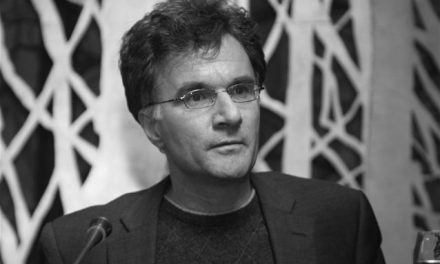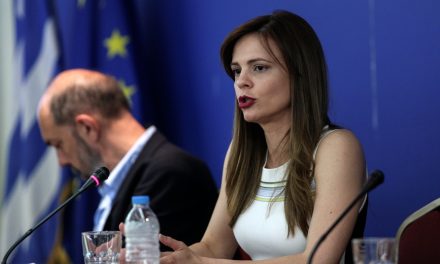The EuroMemorandum 2016, (“Addressing Europe’s Multiple Crises: An agenda for economic transformation, solidarity and democracy”) published in February 20016 – drawing on discussions and papers presented at the 21st Workshop on Alternative Economic Policy in Europe, organized by the EuroMemo Group of Economists, critically analyses recent economic developments in Europe and emphasises the strong need for an alternative economic policy that is based on the principles of democratic participation, social justice and environmental sustainability:
“The year 2015 was marked on the one hand by the inability of the EU to emerge from the crisis which began in the financial sector in 2007/2008 and which shifted into the sphere of public finances in 2009/2010, and on the other by a dramatic rise in the number of people taking flight from their homes and from their homelands, because of wars and terrorist attacks, in many cases caused by the destructive policies of the EU and of its member states.
The continuing low growth rate environment in many countries, stagnation in others and even recession in some, have led not only to a general slow-down, but also to deepening divisions within the EU, both between member states and between regions. Such divergences are reflected in the basic economic and social indicators of the area, as well as in the democratic process on the political level, as certain countries acquire a hegemonic role in the shaping of EU policy, while particular group interests, notably those of financial capital, become dominant across the EU as a whole. The Greek experience amply revealed the connecting links between politics and economics in the EU, i.e. the power imbalance between the ruling elites and society at large. Furthermore, it raises serious issues of constitutionalism: namely, the tendency of the EU institutions to restrict the area of democratic decision making by democratically elected governments, focusing instead on technocratic rules imposed by undemocratic decision bodies. In this sense, a discussion of alternative proposals to the current EU economic and social policy needs to take into account the underlying political process and the squeezing out of democracy.”
The main themes discussed in EuroMemorandum 2016 are summarized below:
Recent macroeconomic developments, policies and alternatives for economic growth and employment
A coordinated fiscal expansion is required. This should focus on boosting employment through the promotion of environmentally desirable and gender-sensitive investments and the attack on social spending should end. The single currency must be complemented by an effective federal level fiscal policy which is able to cushion downturns at the federal, national and regional level and to provide for effective transfers between the richer and poorer regions. This should be based on a strongly progressive tax system and complemented by the development of a European wide system of unemployment insurance which would provide an important automatic stabiliser. The regional and structural policies of the EU should be strengthened and expanded, in particular through a major programme of public and private investment, funded by the European Investment Bank, focussed above all on deficit countries and, more generally, on lower income states.
The democratic challenge
Developments in Greece point to the widening democratic deficit in the EU, and the way in which economic policy is being subjected to constitutional rules which remove it from the realm of democratic deliberation and social choice. The narrative of a ‘state of emergency’ has been used to promote legal acts which breach the constitutional law of the states of the euro area periphery and to empower the least representative European institutions, the European Central Bank and the twin Euro summit and Eurogroup councils, which operate according to unwritten rules. The proposals contained in the Five Presidents Report claim to promote greater prosperity and solidarity in Europe but will serve to reinforce the technocratic character of EU governance.
Migration, labour market and demographic change in the EU
The currency union project, without a counterpart of fiscal union and fiscal solidarity, revealed the fragility of the union of countries with different economic structures around a single currency – the continuing crisis in Greece is just one example of such contradictions. Fiscal solidarity to offer support to migrating EU citizens could help the EU to overcome its current crisis. A Europe of solidarity (instead of austerity) has a better foundation for extending a hand to the hundreds of thousands fleeing wars in the Middle East and Africa without giving rise to anti-immigration populist stance. The EU has to stand firm on the principle of ‘freedom of movement,’ for it is perhaps the only area where people of Europe are directly affected and experience the cultural diversity and ‘citizenship’ of Europe, hopefully an inclusive and integrated one.
Youth unemployment in the EU
The rapid increase in NEET indicators (young people ‘Not in Education, Employment or Training’) shows that besides the unemployed there are millions of economically inactive young people with little or no connection to the world of work and that the problem is even more acute for the age group 25-34 than for 16-24 year olds. What is needed, both in the case of youth unemployment and across the whole field of social policy, is a reversal of priorities, anchored in social rights, which subordinates competition and public finance rules to social objectives.
The challenge of the TTIP, and the Eastern Partnership
TTIP could be a fatal blow to European integration; the single market would be diluted in a transatlantic market and the perspective of deepening European economic integration permanently put into question. Instead, the alternative approach to EU trade policy proposed would positively contribute to both the EU social model and an international economic order based on mutual respect and cooperation. Relatedly, an alternative ‘good regulatory practices’ is proposed too. The Eastern Partnership (EP) is leading to widening asymmetric relations with the EU, deindustrialisation of East European countries, and worsening divisions within Europe and the EU. The association agreements can only hit Russia head-on, triggering reactions with unforeseeable consequences. An alternative EP is urgently needed, thus contributing to socially and ecologically sustainable development while creating strong regional dynamics.
About EuroMemorandum & EuroMemo Group
The EuroMemo Group (European Economists for an Alternative Economic Policy in Europe) is a network of European economists committed to promoting full employment with good work, social justice with an eradication of poverty and social exclusion, ecological sustainability, and international solidarity. The group was founded in 1995, and includes participants from a wide range of European countries. It holds an annual conference, usually at the end of September, and publishes an annual Memorandum which provides a critical analysis of recent developments in the European Union and is available in several European languages.
The EuroMemorandum 2016 text is based on written contributions from Marija Bartl, Predrag Bejaković, Marcella Corsi, Gary Dymski, Kyriakos Filinis, Marica Frangakis, John Grahl, Peter Herrmann, Agustín José Menéndez, Mahmood Messkoub, Ronan O’Brien, Owen Parker, Oliver Prausmüller, Robbie Pye, Magnus Ryner, Malcolm Sawyer, Catherine Sifakis, Jean-Claude Simon, Nicos Theocarakis, and Achim Truger.
More than 320 economists and social scientists from all over Europe and beyond have declared their support for the new EuroMemorandum. The summary of the EuroMemorandum 2016 is also available in Greek (“Για την αντιμετώπιση των Πολλαπλών Κρίσεων στην Ευρώπη: Μια Ατζέντα για τον οικονομικό μετασχηματισμό, την αλληλεγγύη και τη δημοκρατία”).
Related initiatives: Arbeitsgruppe Alternative Wirtschaftspolitik (Germany); Euro-pen – European Progressive Economists Network; BEIGEWUM – Beirat für gesellschafts-, wirtschafts- und umweltpolitische Alternativen (Austria); Les Économistes Atterrés (France); Las jornadas de Economía Crítica (Spain); Sbilanciamoci (Italy); transform! (european network for alternative thinking and political dialogue)
TAGS: CRISIS















